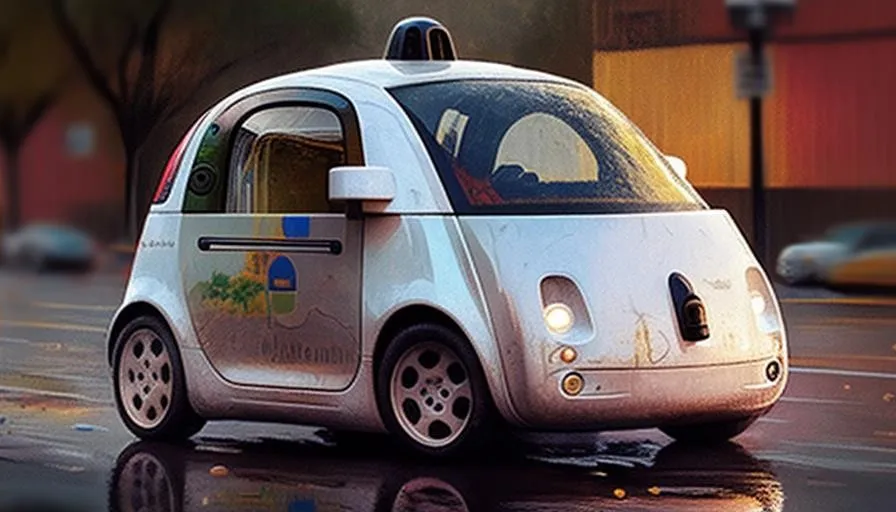1
Electronic Video Blog / Is the Grid Ready for Electric Vehicles?
« on: February 15, 2024, 09:55:17 AM »
How to Pay for EV Charging Stations

Why Electric Vehicles?
Electric vehicles offer numerous benefits over traditional internal combustion engine (ICE) vehicles, making them a compelling choice for eco-conscious consumers. Here are some noteworthy advantages:
Environmental Sustainability: EVs produce zero tailpipe emissions, reducing greenhouse gas emissions and improving air quality.
Reduced Dependency on Fossil Fuels: Electric vehicles can be powered by renewable energy sources, reducing the reliance on finite fossil fuels.
Lower Operational Costs: Electric vehicles have lower maintenance and fuel costs compared to their ICE counterparts, resulting in long-term cost savings.
Technological Advancements: Rapid advancements in battery technology are enhancing the range, performance, and charging infrastructure of EVs.
Kia's Electric Vehicle Vision
Kia Motors aims to be a global leader in the EV market. By 2023, they plan to introduce a total of seven new electric vehicles across various segments, including passenger cars, SUVs, and crossovers. This commitment aligns with Kia's goal of achieving a 25% share of its sales from eco-friendly vehicles by 202
Let's take a closer look at some of the key takeaways and features of Kia's electric vehicles:
Impressive Range
Kia's upcoming EVs will offer an impressive range, allowing drivers to travel longer distances on a single charge. With advancements in battery technology, Kia aims to eliminate range anxiety, a common concern among potential EV buyers.
Cutting-Edge Technology
Kia's electric vehicles will incorporate cutting-edge technology, providing an enhanced driving experience. From advanced driver-assistance systems to intuitive infotainment interfaces, these EVs will revolutionize the way we interact with our cars.
Rapid Charging Capabilities
To address the issue of charging infrastructure, Kia is investing in the development of rapid charging capabilities. With faster charging times, EV owners can conveniently recharge their vehicles, making electric mobility more accessible and convenient.
Striking Design
Kia understands the importance of aesthetics, and their upcoming EVs are no exception. With sleek and modern designs, these vehicles will not only be eco-friendly but also visually appealing, capturing the attention of consumers.
Conclusion
Kia Motors' commitment to electric vehicles represents a significant step towards a greener future. By offering a wide range of electric vehicles with impressive features, Kia aims to meet the evolving needs of eco-conscious consumers worldwide. With zero emissions and lower operational costs, these EVs are poised to transform the automotive industry.
Join Kia Motors on their journey towards sustainable transportation and experience the thrill of driving an electric vehicle that contributes to a cleaner environment.
Navigate to Website: http://safarisenergy.com/

Why Electric Vehicles?
Electric vehicles offer numerous benefits over traditional internal combustion engine (ICE) vehicles, making them a compelling choice for eco-conscious consumers. Here are some noteworthy advantages:
Environmental Sustainability: EVs produce zero tailpipe emissions, reducing greenhouse gas emissions and improving air quality.
Reduced Dependency on Fossil Fuels: Electric vehicles can be powered by renewable energy sources, reducing the reliance on finite fossil fuels.
Lower Operational Costs: Electric vehicles have lower maintenance and fuel costs compared to their ICE counterparts, resulting in long-term cost savings.
Technological Advancements: Rapid advancements in battery technology are enhancing the range, performance, and charging infrastructure of EVs.
Kia's Electric Vehicle Vision
Kia Motors aims to be a global leader in the EV market. By 2023, they plan to introduce a total of seven new electric vehicles across various segments, including passenger cars, SUVs, and crossovers. This commitment aligns with Kia's goal of achieving a 25% share of its sales from eco-friendly vehicles by 202
Let's take a closer look at some of the key takeaways and features of Kia's electric vehicles:
Impressive Range
Kia's upcoming EVs will offer an impressive range, allowing drivers to travel longer distances on a single charge. With advancements in battery technology, Kia aims to eliminate range anxiety, a common concern among potential EV buyers.
Cutting-Edge Technology
Kia's electric vehicles will incorporate cutting-edge technology, providing an enhanced driving experience. From advanced driver-assistance systems to intuitive infotainment interfaces, these EVs will revolutionize the way we interact with our cars.
Rapid Charging Capabilities
To address the issue of charging infrastructure, Kia is investing in the development of rapid charging capabilities. With faster charging times, EV owners can conveniently recharge their vehicles, making electric mobility more accessible and convenient.
Striking Design
Kia understands the importance of aesthetics, and their upcoming EVs are no exception. With sleek and modern designs, these vehicles will not only be eco-friendly but also visually appealing, capturing the attention of consumers.
Conclusion
Kia Motors' commitment to electric vehicles represents a significant step towards a greener future. By offering a wide range of electric vehicles with impressive features, Kia aims to meet the evolving needs of eco-conscious consumers worldwide. With zero emissions and lower operational costs, these EVs are poised to transform the automotive industry.
Join Kia Motors on their journey towards sustainable transportation and experience the thrill of driving an electric vehicle that contributes to a cleaner environment.
Navigate to Website: http://safarisenergy.com/


